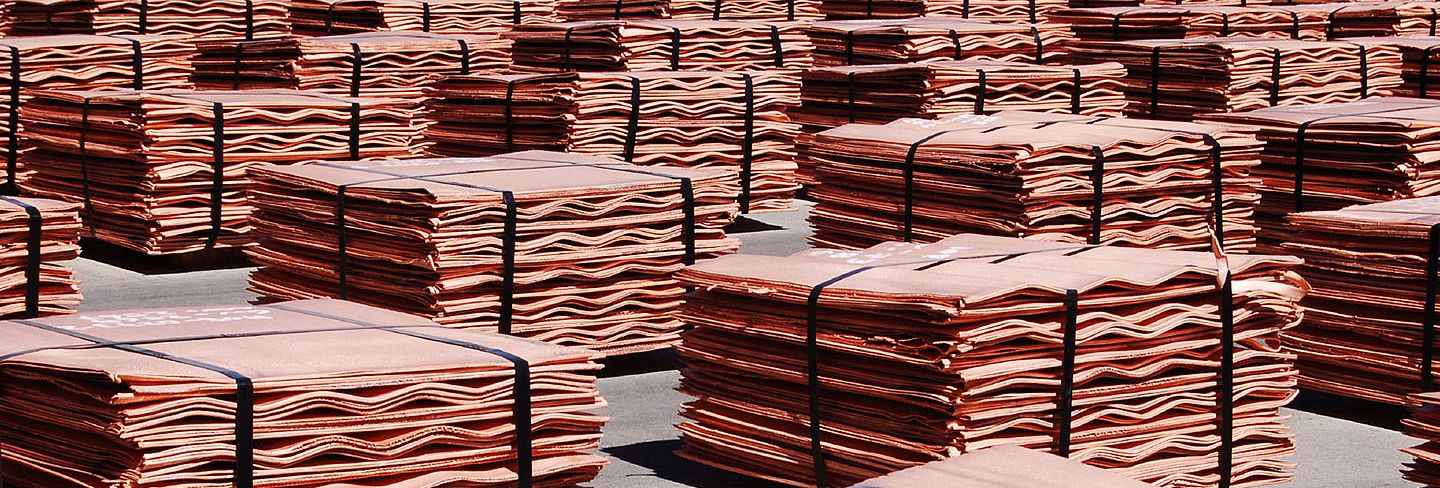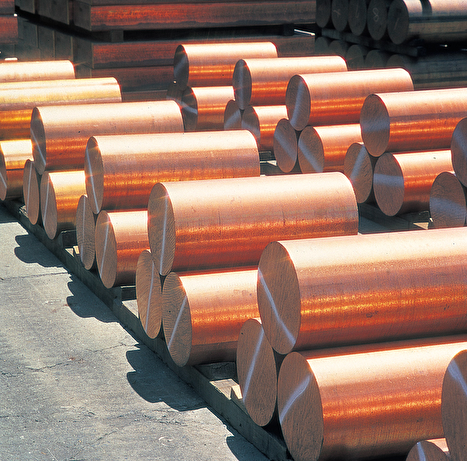Why Copper Products Are Necessary for Electrical Applications and Reliable Circuitry
Why Copper Products Are Necessary for Electrical Applications and Reliable Circuitry
Blog Article
Checking Out the Diverse Applications of Copper Products in Modern Industries
Copper products have actually established themselves as indispensable components throughout a myriad of contemporary industries, primarily as a result of their impressive conductivity, pliability, and resistance to corrosion. From improving the effectiveness of electrical systems to playing an essential role in renewable energy innovations, the flexibility of copper appears. Its recyclability positions it as a sustainable choice in manufacturing and electronics. As sectors progressively focus on innovation and sustainability, the varied applications of copper require a closer evaluation, particularly regarding their potential effect on future technological improvements and ecological techniques.
Electrical Applications of Copper
Copper is a vital material in the electric industry, representing roughly 60% of the overall demand for non-ferrous steels globally - Copper Products. Its premium electric conductivity, which is virtually twice that of aluminum, makes it the recommended choice for a variety of electrical applications. From wiring systems in residential and industrial structures to high-voltage power transmission lines, copper makes sure effectiveness and integrity in electricity shipment
Along with circuitry, copper is integral to the manufacturing of electric parts such as motors, generators, and transformers. These components take advantage of copper's thermal conductivity and pliability, important for warmth dissipation and efficient performance. Moreover, copper's resistance to rust enhances the life expectancy and toughness of electric systems, making it a cost-efficient service in the lengthy term.
The growth of eco-friendly energy sources, such as solar and wind power, has additionally increased the need for copper in electrical applications. As industries change in the direction of lasting power solutions, copper's duty ends up being much more vital. On the whole, the convenience and efficiency qualities of copper solidify its standing as a cornerstone product within the electric industry, driving innovation and effectiveness across different applications.
Pipes and Piping Solutions
In contemporary plumbing systems, the option of products dramatically influences both functionality and durability. Copper has actually become a favored choice because of its one-of-a-kind buildings, including rust resistance and antimicrobial qualities. These characteristics make certain that copper piping remains resilient and safe for transferring potable water, a crucial factor to consider in domestic and industrial applications.
One of the vital benefits of copper in pipes is its capability to hold up against heats and stress, making it appropriate for a variety of applications, from warm water systems to home heating and cooling down networks. Furthermore, copper's flexibility enables simpler installation in complicated piping designs, lowering the risk of leaks and failings.
One more noteworthy benefit is copper's long life expectancy, frequently surpassing 50 years with correct maintenance. This durability not just reduces substitute expenses however additionally adds to sustainable practices by reducing Read More Here waste. Copper's recyclability straightens with modern environmental requirements, promoting a circular economy within the pipes sector.
Copper in Renewable Resource
The adaptability of copper extends past pipes applications, playing a crucial duty in the sustainable energy market. In solar panels, copper is made use of in solar cells and electrical wiring, assisting in reliable power conversion and transmission.

Moreover, as the international need for electrical lorries (EVs) increases, copper's duty in battery systems and billing infrastructure ends up being even much more significant. The product's capability to perform electrical energy successfully is indispensable to the efficiency of EV batteries, improving variety and billing speed.
Copper's Duty in Electronics
Electronics making depends greatly on copper's outstanding residential or commercial properties, specifically its high electric conductivity and thermal efficiency. These qualities make copper an excellent option for a vast array of electronic elements, including ports, circuit card, and circuitry. The metal's capacity to successfully send electrical signals makes sure marginal energy loss, which is essential in high-performance electronic devices.
Furthermore, copper's thermal conductivity plays a substantial role in warmth dissipation, shielding delicate elements from overheating. This is specifically essential in modern electronics, where compact styles bring about increased warmth generation. Copper is additionally favored for its malleability and ductility, enabling it to be quickly shaped right into elaborate designs that meet the demands of sophisticated digital applications.
With the surge of consumer electronic devices, telecoms, and electrical vehicles, the need for copper in the electronics industry continues to expand. Thus, copper remains a cornerstone product in the ever-expanding area of electronics.
Innovative Utilizes in Manufacturing

One notable application remains in additive production, where copper-based materials are used in 3D site web printing processes. This enables the production of intricate geometries and lightweight parts, especially in the aerospace and auto sectors. Additionally, copper's thermal conductivity makes it an excellent option for warm exchangers, improving efficiency in commercial air conditioning systems.
In addition, the surge of wise manufacturing has seen the incorporation of copper in IoT gadgets, where its conductive capabilities sustain advanced sensing modern technologies. In the realm of renewable resource, copper is pivotal in the production of solar panels and wind generators, promoting extra reliable energy conversion and distribution.
As markets strive for sustainability and innovation, copper's convenience and efficiency proceed to position it as an essential material, driving innovations in production and contributing to the growth of smarter, much more effective items.
Verdict
The integral role of discover this copper in eco-friendly power and its crucial feature in electronic devices underscore its significance in advancing lasting methods. Collectively, these applications highlight copper's essential contribution to technical development and commercial efficiency in contemporary culture.
From improving the efficiency of electrical systems to playing an essential function in renewable power innovations, the versatility of copper is evident. As sectors progressively focus on development and sustainability, the diverse applications of copper necessitate a closer evaluation, specifically concerning their potential impact on future environmental methods and technological developments.
The development of sustainable energy resources, such as solar and wind power, has actually further boosted the need for copper in electrical applications. Generally, the convenience and efficiency characteristics of copper solidify its status as a foundation material within the electrical market, driving development and effectiveness across various applications.
The versatility of copper expands beyond plumbing applications, playing a crucial role in the sustainable energy industry.
Report this page